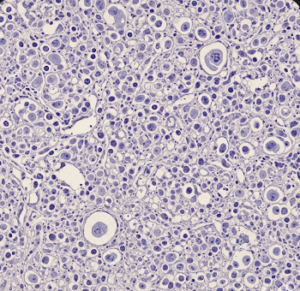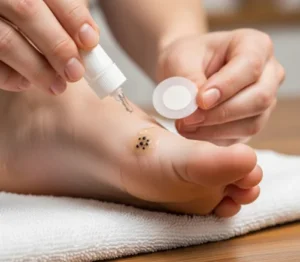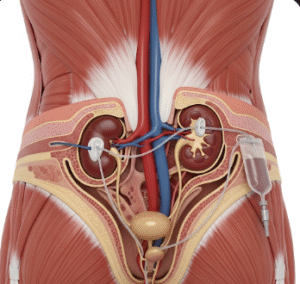Korea’s approach to health goes far beyond quick fixes or short-term remedies — it’s rooted in the belief that a strong immune system is the foundation of lifelong wellness. From time-honored herbal medicine to nutrient-rich diets and mindful living, the Korean lifestyle focuses on balance, prevention, and daily consistency. By blending traditional practices with modern science, Koreans have mastered a natural and holistic way to strengthen the body’s defenses and promote vitality.
The Philosophy Behind Korean Immunity
In Korean culture, immunity is viewed as the body’s vital energy system, known as Gi (기). When this energy flows smoothly, the body naturally resists illness and recovers faster. The goal is not just to fight disease, but to maintain balance between body, mind, and environment.
➡️ Core principles of Korean immune health:
• Prevention over cure: Daily care is more powerful than emergency treatment.
• Balance and moderation: Diet, rest, and exercise are kept in equilibrium.
• Inner calm: Emotional stability supports physical health.
• Seasonal adaptation: Lifestyle changes according to weather and temperature shifts.
✅ Key idea: Immunity isn’t built in a day — it’s cultivated over time through steady, mindful living.
Nutrition: The First Line of Defense
Koreans believe that food is the first medicine. A well-balanced diet provides the body with essential nutrients that support immune function, gut health, and energy.
➡️ Immune-boosting Korean foods:
• Kimchi: Packed with probiotics that strengthen the gut, where 70% of the immune system resides.
• Garlic and ginger: Natural antibacterial and antiviral agents used in nearly every Korean dish.
• Seaweed (Miyeok, Gim): Rich in iodine, zinc, and antioxidants for cellular protection.
• Soy-based foods (Doenjang, Tofu): Provide plant proteins and immune-supporting amino acids.
• Ginseng: Improves stamina and strengthens the body’s resilience against fatigue.
• Green tea: Contains catechins that help fight viruses and support detoxification.
✅ Scientific support: Studies from Korean medical institutes show that fermented foods and plant-based meals significantly enhance gut flora diversity, improving immune function and reducing inflammation.
The Power of Herbal Medicine
Herbal medicine (Hanbang, 한방) has long been a cornerstone of Korean preventive healthcare. These herbs work to nourish the body, balance energy, and strengthen resistance against infections and fatigue.
➡️ Common immunity-boosting herbs:
• Red Ginseng (Hong-sam): Enhances immune cell activity and combats stress-related weakness.
• Astragalus root (Hwanggi): Increases white blood cell count and prevents frequent colds.
• Licorice root (Gamcho): Soothes the respiratory tract and harmonizes herbal formulas.
• Schisandra berry (Omija): Protects the liver and boosts endurance.
• Angelica root (Danggui): Nourishes the blood and supports hormonal balance.
• Reishi mushroom (Yeongji): Reduces inflammation and enhances sleep quality.
🌿 Practical tip: Many Koreans drink herbal tonics or teas in the morning, especially during seasonal changes, to reinforce their immune system naturally.
Fermentation: Nature’s Immunity Enhancer
Fermented foods are a vital part of the Korean diet and one of its biggest secrets to long-term immunity. Fermentation not only preserves food but also amplifies its nutritional value.
➡️ Health benefits of fermentation:
• Promotes healthy gut bacteria that protect against infection and inflammation.
• Increases vitamin levels, especially B vitamins and vitamin K.
• Enhances digestion and absorption of nutrients.
• Boosts detoxification by improving liver function.
✅ Top fermented staples: Kimchi, doenjang (soybean paste), gochujang (red chili paste), and makgeolli (fermented rice drink).
💡 Insight: The gut is often called the “second brain” — keeping it healthy ensures your immune system remains strong and active.
The Role of Hydration and Tea Culture
Koreans prioritize hydration through warm beverages rather than cold drinks, believing that warmth promotes circulation and digestion.
➡️ Popular immune-supporting teas:
• Ginger tea (Saenggang-cha): Wards off colds and supports digestion.
• Citron tea (Yuja-cha): High in vitamin C and antioxidants.
• Ginseng tea: Energizes the body and strengthens resistance.
• Barley tea (Bori-cha): Cleanses the system and maintains gut balance.
• Mugwort tea (Ssuk-cha): Detoxifies the body and reduces inflammation.
🍵 Tip: Drinking warm tea throughout the day keeps the throat moist and supports immune defenses, especially during dry or cold seasons.
Sleep and Stress Management
Rest and emotional well-being are as important to immunity as diet and herbs. Korean wellness philosophy emphasizes quality sleep and inner calm to keep the body’s energy system balanced.
➡️ Healthy Korean habits for better rest and relaxation:
• Regular bedtime: Going to bed and waking up at consistent times.
• Evening tea: A calming herbal blend before sleep to relax the mind.
• Screen-free wind down: Avoiding digital devices an hour before bed.
• Meditation or breathing exercises: Reduces stress and promotes oxygen flow.
• Hot baths or foot soaks: Common in Korea to improve blood circulation and detox before sleep.
💭 Fact: Chronic stress elevates cortisol, which suppresses immune activity. Korean relaxation rituals are designed to lower stress naturally and restore equilibrium.
Physical Activity and Outdoor Wellness
Movement is essential for both circulation and immune function. Koreans often integrate gentle exercise into their daily routines instead of extreme workouts.
➡️ Everyday activities that boost immunity:
• Morning stretching or yoga: Awakens the body and supports lymphatic flow.
• Walking in nature: A traditional practice known as Sanchaek (산책), which clears the mind and strengthens the lungs.
• Mountain hiking: Korea’s favorite national pastime, known to improve stamina and cardiovascular health.
• Breathing exercises (Gi-gong or Kuk Son Do): Balance energy and enhance oxygen intake.
🌄 Holistic view: Physical movement is not just for fitness—it’s a way to align mind, breath, and body energy for optimal health.
Seasonal Immunity Practices
Korean traditions pay close attention to seasonal transitions, when the body is most vulnerable. Seasonal foods and rituals are used to support the immune system during these times.
➡️ Examples of seasonal immune care:
• Spring: Detox soups with mugwort and greens to cleanse the liver.
• Summer: Cooling foods like cucumber and barley tea to balance body heat.
• Autumn: Pear and honey drinks to soothe dry lungs and throat.
• Winter: Ginseng chicken soup (Samgyetang) to strengthen internal warmth and immunity.
🍲 Tip: Eating seasonally not only supports immunity but also aligns the body’s rhythm with nature’s cycles.
Mindful Living: The Hidden Key to Immunity
Korean wellness culture emphasizes the connection between mental peace and physical health. Calmness, gratitude, and balance are considered vital nutrients for the immune system.
➡️ Daily mindfulness habits:
• Start mornings with gratitude or light meditation.
• Spend time outdoors or with loved ones to maintain emotional health.
• Practice moderation — avoid overwork, overeating, and excessive stress.
• Maintain cleanliness and personal hygiene, a deeply cultural habit in Korea.
🧘 Lesson: A peaceful mind supports stronger immunity — a truth deeply embedded in both traditional medicine and modern neuroscience.
The Modern Integration of Korean Immunity Practices
Today, Korea is combining ancient wellness with modern technology to promote preventive health. Medical spas, wellness clinics, and even skincare brands are incorporating immune-boosting herbal and nutritional programs into their services.
➡️ Modern examples:
• Herbal tonics packaged as health drinks for busy professionals.
• AI-based nutrition programs using body scans to recommend personalized diets.
• Spa therapies with ginseng and mugwort infusions for immune recovery.
• Functional supplements blending Korean herbs with vitamins and probiotics.
⚙️ Result: Preventive immunity is becoming a lifestyle — supported by both science and tradition.
Final Thoughts
Building a healthy immune system the Korean way is about more than taking vitamins or avoiding illness — it’s about creating a balanced lifestyle that nurtures your body daily. Through natural foods, herbal support, mindful rest, and consistent care, the Korean wellness model teaches that prevention is the most powerful medicine of all.
🌿 True immunity is not built overnight — it’s cultivated through everyday balance, gratitude, and respect for the body.
✨ Live like the Koreans do: eat with awareness, move with purpose, rest with intention — and your body will thank you with lasting health and strength.













